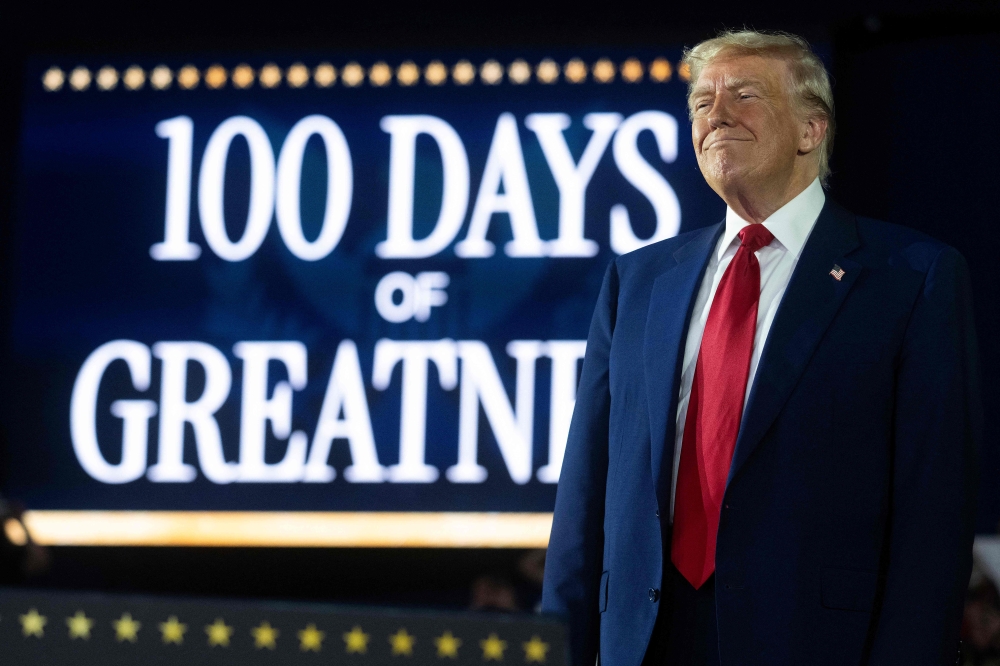Chinese factory activity fell in April at its fastest pace since 2023, underlining the growing impact of the US-China trade war.Asian markets were mixed as investors digested weak Chinese data and awaited key US economic releases.Economists warn that while tariff rates may have peaked, the uncertainty surrounding trade policies is likely to further hurt global growth.
HONG KONG, April 30 — Stocks opened flat on Wednesday as investors struggled to mirror Wall Street’s rally, with fresh data showing Chinese factory activity contracted this month at its fastest pace in nearly two years, reflecting the growing impact of Donald Trump’s trade war.While markets have recovered some ground since the US president’s “Liberation Day” tariff announcement on April 2, uncertainty continues to dominate as countries seek trade deals to avoid the full brunt of Washington’s penalties.China has notably refrained from sending delegations to the United States to negotiate reductions in the steep tariffs of up to 145 per cent on its goods, instead imposing retaliatory duties of 125 per cent.

The effects of these measures became more evident in April, with data on Wednesday showing manufacturing activity shrank at its sharpest pace since July 2023, just a month after expanding at its fastest in a year.This contraction followed a more than 12 per cent surge in Chinese exports last month, as companies rushed to ship goods ahead of the new tariffs.Observers warn that the situation could deteriorate further.
“The weak manufacturing PMI in April is driven by the trade war,” said Zhiwei Zhang, president and chief economist at Pinpoint Asset Management. “The macro data in China and the US will weaken further..
. as the trade policy uncertainty delays business decisions,” he added.Shares declined in Hong Kong and Shanghai, as well as in Seoul, Wellington and Jakarta.
Tokyo bucked the trend, buoyed by a surge in Sony shares after reports that the company is considering spinning off its chip division, raising expectations that such a move would unlock value.Markets in Sydney, Singapore, Taipei and Manila edged higher.Equities have clawed back much of the steep losses from earlier this month, helped by signs of flexibility from Trump on certain issues and ongoing negotiations between governments and Washington.
US Commerce Secretary Howard Lutnick said he had reached an agreement with one country, though he did not name it, while Treasury Secretary Scott Bessent noted progress with India, South Korea and Japan.However, Saxo’s chief investment strategist Charu Chanana warned that more economic trouble lies ahead.“We’ve probably seen peak tariff rates, but not peak tariff uncertainty,” she said.
“The hard data still reflects the impact of front-loaded demand, as companies and consumers rushed to buy goods ahead of expected tariff increases.“We haven’t yet seen the real data showing the drag from sustained uncertainty and elevated tariff costs. As that uncertainty filters through business decisions, we expect a more meaningful slowdown in real economic activity – in production, hiring, and investment.
“In short, the rate shock may be behind us, but the real growth damage is just starting to unfold.”Investors are now awaiting key US inflation and economic growth data due later today, with job figures expected on Friday.This week also sees earnings reports from major Wall Street firms including Microsoft, Apple, Meta and Amazon, which investors hope will offer insights into how US corporations are coping with the tariff crisis and what lies ahead.
— AFP.
Top

Markets rattle as China’s factory slump exposes real cost of Trump-era tariffs

Chinese factory activity fell in April at its fastest pace since 2023, underlining the growing impact of the US-China...











